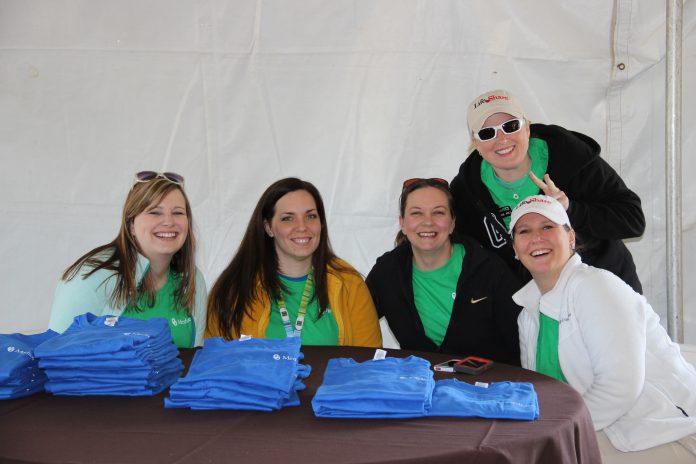
CAREERS IN NURSING
NURSE LEADER A LIFESAVER AT HEART – LIFESHARE OKLAHOMA CITY
by James Coburn – Writer/Photographer
Jennifer, RN, BSN, makes a difference every day.
Of that, she is sure.
But the best thing about the 28-year-old’s job as an Organ Recovery Coordinator for LifeShare is that it’s her calling.
“I love what we do and it’s such a wonderful thing,” Leader said. “It’s wonderful that every time I get to go to work I get to save someone’s life.”
LifeShare was created in 1986 as The Oklahoma Organ Sharing Network – a nonprofit, federally designated organ procurement organization (OPO) dedicated to the recovery of organs and tissue for transplant purposes.
LifeShare works closely with five transplant centers including OU Medical Center, The Children’s Hospital at OU Medical Center, Integris Baptist Medical Center, Saint Francis Hospital and St. John’s Medical Center as well as 145 healthcare organizations in the state of Oklahoma to facilitate donation.
Leader’s role is to travel the state and whenever a patient is declared brain dead, and is an organ donor, she gets to bring hope – and new organs – to patients in need.
“You know when you’re leaving this person is getting a heart and this person is getting a kidney – it’s multiple people,” Leader said. “I think it’s a great thing to give new life.”
Leader’s nursing role gives her much more autonomy than in a hospital nurse setting. After a conversation with LifeShare’s medical director it’s up to her on the best way to go about her job.
That involves stabilizing the body so the organs will preserve. From there it’s a race against the clock.
It was in the ER that Leader first became acquainted with LifeShare. She noticed how a LifeShare nurse would come after a patient had been declared brain dead and coordinate an organ harvest that would save the lives of several individuals at a time.
It was something that hit home as her dad had received a liver transplant after a rare genetic disease had caused his to fail when she was younger.
Leader was one of several people earning her nursing degree at a University of Oklahoma College of Nursing program offered in Miami.
She began her career as an emergency room nurse in Joplin. From there she worked ER at OU Medical Center with a six-month stint in ICU that only proved she loved ER even more.
With approximately 900 Oklahomans waiting for a lifesaving transplant, and more than 123,000 Americans on the list, Leader believes there is no telling whose life you could save by becoming a donor.
“We ask people to take just a few minutes this holiday week, while they are with their family, to discuss organ, eye and tissue donation,” said Jeffrey Orlowski, president and chief executive officer of LifeShare. “Registering to be a donor is a personal decision that needs to be shared with one’s family, so please let your wishes be known.”
There are three ways to register to be a donor in Oklahoma:
1. ON YOUR LICENSE OR STATE ID CARD – When you get your driver’s license or state ID card, you will have an opportunity to say yes to organ, eye and tissue donation and you will have an opportunity to donate a dollar to the Oklahoma Donor Education Fund. If you have registered on your license or state ID card, you do not need to register in any other way.
2. ONLINE – If you have not registered on your driver’s license or state ID card, you can go online anytime and register in just minutes at www.LifeShareRegistry.org. Registering online gives you the ability to access your registry page and change your donation information.
3. ON THE PHONE –You can call 800-826-LIFE (5433) and request that a donor registration form be sent to you. After you complete the form and return it, your name and donation wishes will be added to the LifeShare Donor Registry.
Additionally, the group strives to raise awareness for organ, eye and tissue donation and transplantation through public education.
LifeShare Transplant Donor Services of Oklahoma is located at 4705 NW Expressway in Oklahoma City and has approximately 100 staff members responsible for various tasks including organ, eye and tissue screening and recovery, medical management of potential donors, quality control services, bereavement care for families, public education and awareness, hospital development and basic administration.
Leader says LifeShare staff members like her are specifically responsible for the management of potential donors and are called Organ Recovery Coordinators. These staff members travel all over the state to manage the organ recovery process. Organ Recovery Coordinators work closely with surgical teams to recover donated organs, determine qualifying recipients for donation placement using the guidelines established by United Network for Organ Sharing (UNOS) and manage the process of transporting the donated organs to the recipient hospitals.












